The cyberattack on one of the largest health payment processing companies in the world, Change Healthcare, left many private medical practices with serious cashflow problems. While the administration and Change Healthcare have been helping physician practices navigate the complexities involved in sending claims and receiving payments, service disruptions continue to affect the healthcare ecosystem. According to AMA’s survey, 75% of the practices continue to face barriers with claim submission and 85% experience disruptions in claim payments.
Our clients were affected by this disruption too. However, our expert team swiftly took some critical steps to minimize the impact that they could continue to focus on patient care.
To be prepared for this eventuality in the future, your medical billing partner could take these five steps to minimize the impact on your practice:
1. Submit Paper Claims:
When electronic billing is disrupted, your billing company should immediately switch to paper-based claims. Even though electronic billing is usually the preferred mode, the Centers for Medicare & Medicaid Services (CMS) allowed Medicare Administrative Contractors (MACs) to accept paper submissions during the Change healthcare outage.
2. Seek Accelerated Payments:
To deal with potential cash flow problems caused by the inability to submit claims electronically, your biller should apply for accelerated or advance payments from Medicare. This will help maintain financial stability during a disruption.
3. Communicate with Insurance Payers:
It is important to reach out to non-government insurance companies and payers to understand their specific processes and guidelines during the outage. Some payers might have offered interim payments or other financial support to help bridge the cash flow gaps.
4. Utilize Interim Payments from Private Payers:
Your billing partner should contact private insurance companies to request interim payments. Many larger payers could provide bridge payments to affected providers, which will ease immediate financial pressures.
5. Relaxed Prior Authorization Requirements:
Your billing partner should stay updated on any changes from payers regarding the relaxation or removal of prior authorization and utilization management requirements. This will reduce administrative burdens and ensure timely care for patients.
If necessary, as a last resort, consider switching clearinghouses. If Change Healthcare is your primary clearinghouse for claims processing, your billing partner could reach out to your Medicare Administrative Contractor (MAC) to request enrollment with a new electronic data interchange (EDI). This would allow you to switch to an alternative clearinghouse for processing claims. However, it’s important to note that this option should only be considered as a last resort due to the potentially high costs and complexities involved.
By following these steps, your practice can minimize the impact of such attacks, ensuring that you can continue providing care to patients while maintaining financial and operational stability.
Conclusion
It is crucial to have established processes in place to ensure smooth business operations. You need a reliable partner like Medetec who can effectively manage such situations and minimize disruptions to your practice. Medetec is committed to helping customers navigate through challenging times by taking proactive measures, as mentioned above.


